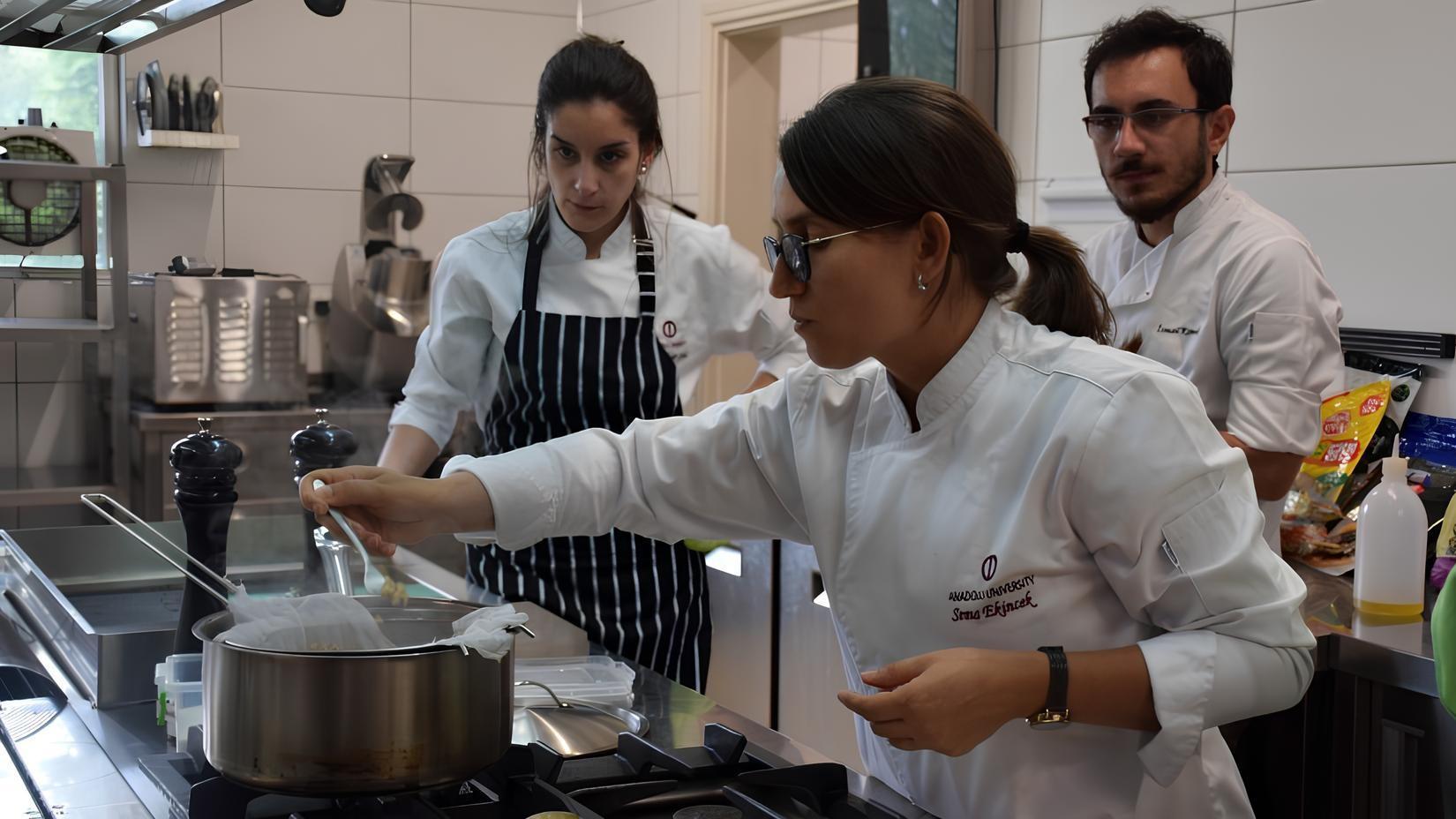
An increasing number of Turkish high school and university students have turned to gastronomy programs in recent years, reflecting the sector’s growing allure despite some issues.
Yet, while the industry continues to demand more innovation and skilled labor, sustaining a long-term career in the field remains a formidable challenge.
Over the past decade, gastronomy education in Türkiye has expanded at breakneck speed. This year alone, 35 private and 68 public universities are offering four-year gastronomy programs. Although two-year vocational programs do not include “gastronomy” as a field, they do offer culinary arts.
In total, 77 of these programs are in public universities and 27 in foundation institutions. Today, nearly every major city hosts such programs and more than 10,000 graduates enter the sector each year. However, experts estimate that only 20 to 25 percent manage to stay in the profession.
One of the main reasons behind this attrition is the gap between the theoretical knowledge provided in schools and the realities of kitchen life, according to the experts providing insights to daily Milliyet.
“Turkish gastronomy has been steadily developing since the 1990s. Every country has its own educational policies,” gastronomy educator Osman Serim told the daily.
“In France, for instance, two- or four-year university-level culinary training does not include practice. Applied training is offered only by private schools, while master’s and doctoral programs are largely theoretical. In Türkiye, however, the situation is different.”
Türkiye’s vast tourism industry fuels a thriving job market for gastronomy graduates, he said, adding that hotels, restaurants, cafes and bars are proliferating, creating a strong demand for qualified staff.
“The problem, as industry insiders stress, is not the lack of jobs but the shortage of adequately trained personnel. Internships and practical training are therefore critical. Graduates rarely enter the workforce as head chefs; instead, they begin as apprentices and work their way up. Those unwilling to climb this ladder often fail to remain in the sector.”
In recent years, young chefs have injected new energy into the country’s culinary scene, treating gastronomy not only as cooking but as a blend of entrepreneurship, social media savvy and creativity.
According to Associate Professor Osman Güldemir, director of Eskişehir Vocational School at Anadolu University, the key lies in integrating academic training with hands-on practice.
Türkiye’s fine-dining landscape continues to gain global recognition. The Michelin Guide unveiled its 2025 Türkiye selection in December 2024, raising the number of Michelin-starred restaurants in the country to 14. Once again, TURK Fatih Tutak emerged as the only restaurant awarded two Michelin stars.